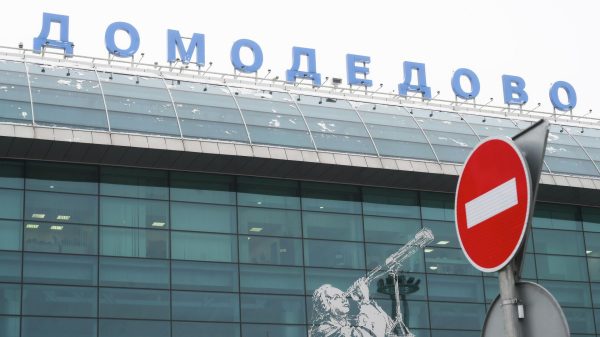Richard Tice, leader of the Reform Party, said his party was «fast becoming the real opposition to Labour». Photo: REUTERS/Phil Noble
If one party has kept the Conservatives up at night over the past few months, it has been reform.
The Liberal Democrats are in third place in the polls, with about 12 points. per cent, they appear to be a major thorn in the government's side ahead of the general election.
In the Blackpool South by-election on Thursday, the rebel party, originally founded by Nigel Farage as the Brexit Party, had its best ever showing by-election.
Reform won 16.8% of the vote and was just 117 votes behind the second-place Conservative candidate.
Richard Tice, leader of the Reform party, said the results showed his right-wing party was «fast becoming the real opposition to Labour.»
However, despite this apparent momentum, news on Friday morning that around one-third of the 107 councils that announced results showed that not a single reform candidate had crossed the line to win a seat on the council.
But this may have more to do with an electoral system that favors the main parties than anything else: in some constituencies, the reform candidate won about a third of all votes cast.
Much of their current poor performance at the national level is also due to the relatively small number of seats the party actually contests locally.
Latest This year, Mr Tice has promised to field a Reform candidate against every Tory at the general election.
However, in the local elections on May 2, the party fielded just 316 council candidates, compared with more than 2,600 seats up for grabs. . enough.
The party is hoping to capitalize on the migration crisis rising to the top of the political agenda, with comparisons with the mid-2010s and the UK Independence Party's heyday growing faster and faster.< /p>
In the 2016 English local parliament elections, in which a similar total number of seats were on offer, Nigel Farage's group mobilized 1,400 council candidates.
Different playing fields
It is clear that the two versions of Farage's party are in this regard on different playing fields.< /p>
A better metric for comparison would be the success rate of the candidates who actually appeared on the ballot.
Friday's results show a total of 129 Reform candidates stood in the local elections for 21 of the contested seats, with one victory to none.
The only sitting Reform candidate in Sunderland lost his seat.
p>In local elections in 2014 and 2015, the party Party Parties Parties Parties Parties Parties Parties Parties Parties (Reform) received 4 percent of all available seats.
p>
Even the Reform Party's performance in the Blackpool South by-election was somewhat overshadowed by that of the Ukip Party (Ukip), with the previous party receiving a larger share of the popular vote in the 2015 general election (17.3 per cent).
< p>Despite the relative fragility of these results, we suggest that an analysis of the data at the constituency level where the party has concentrated its efforts shows that their support is much stronger than the main statistics suggest.
The reform produced 25 candidates in Sunderland, more than any other council in England. Mr Tice described the early results there as «outstanding», adding: «We expect to beat the Tories in most of the 25 seats in Sunderland.»
The Reform candidate actually came second in 9 of the 25 constituencies and received more votes than the Tories in 16 of them.
The party received an average of 14.9 percent of the vote in all constituencies.
The fact that they failed to win a single seat was due to the First Past The Post party. a system used to elect members of local councils, simulating parliamentary elections.
The party's high point came in the Redhill area, north-west of the city centre, where the candidate won 32.3 per cent of all votes. .
In Bolton, Reform came in second in terms of seats with 21 candidates in the city's 22 wards. On average they convinced 9.5 percent of voters, reaching 28.5 percent and finishing second in Tonga with Howl.
Reform could lead to the destruction of the Tories Read more.






















































Свежие комментарии